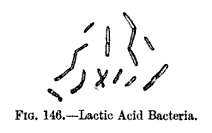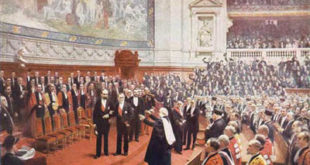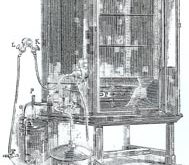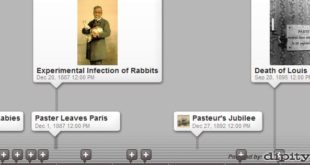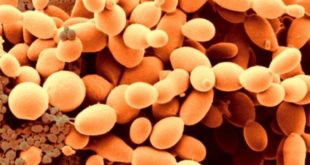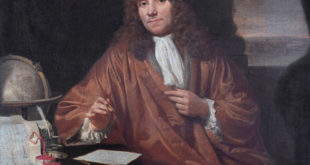Originally published in “Fermentation Organisms” by Albert Klöcker in 1903 Mention has been already made of the discovery of lactic acid bacteria by Pasteur, of their importance in distilleries, and of their recent introduction into the latter in the form of pure cultures. The first to isolate a pure lactic acid bacterium for the above purpose was, as has been …
Read More »Articles
Why the World Celebrates Pasteur’s Birthday
Originally published in “The Independent” on December 23, 1922 THE French Government has announced the appropriation of 2,000,000 francs with which to celebrate properly the 100th anniversary of the birth of Louis Pasteur. The Government appropriation carries with it the statement that Pasteur stands as “The Symbol of French Science.” The anniversary date occurs on December 27, and if all …
Read More »Pasteur Process for Making Unalterable Beer
Taken from the Annual Record of Science and Industry for 1874. Pasteur, the eminent French chemist, has recently given a method for preparing an unalterable beer; that is, a beer which will not turn sour or spoil upon keeping. It is important to consider two facts as preliminary to this process. In the first place, says Pasteur, all the objectionable …
Read More »Louis Pasteur Timeline: The Life of Louis Pasteur
Timeline of Historical Events Involving Louis Pasteur 1822 Louis Pasteur born at 2 a.m. in Dole (Jura), as the third child of Jean-Joseph Pasteur and Jeanne-Etiennette Roqui. 1823 Louis Pasteur is baptized. 1825 Birth of Louis Pasteur’s sister, Josephine. 1826 The Pasteur family moves to Marnoz (Jura), where Jean-Joseph rents a tannery. Birth of Clermont-Ferrand of Marie Laurent, Pasteur’s future …
Read More »Experiments and New Views on the Nature of Fermentations
Comptes Rendus 52, 1260 (1861) [as translated and excerpted in Mikulás Teich, A Documentary History of Biochemistry, 1770-1940 (Rutherford, NJ: Fairleigh Dickinson University Press, 1992)] … It results from this that beer yeast has two ways of living, essentially distinct. Free oxygen gas can be totally absent, or it can be present in any volume whatever. In the second case …
Read More »Germs from Nowhere
Micro-organsims were first discovered about 250 years ago. Antonie van Leeuwenhoek (1632-1723), a Dutch civil servant, learned how to make excellent lenses from which he also built some of the earliest microscopes. Leeuwenhoek used his microscope to look at lots of different things, including drops of water. When he looked at water drops magnified many times, he saw bacteria swimming …
Read More »Louis Pasteur and His Patented Beer Making Equipment
Brewing tanks patented by Louis Pasteur on January 28, 1873 Germ Theory In a simple experiment of drawing through an aspirator a current of outside air through a tube containing a little plug of cotton wool, Pasteur demonstrated that, as the current passed it deposited on this sort of filter some of the solid corpuscles contained in the air. After …
Read More »Studies on Fermentation by Louis Pasteur
Download PDF AUTHOR’S PREFACE. Our misfortunes inspired me with the idea of these researches. I undertook them immediately after the war of 1870, and have since continued them without interruption, with the determination of perfecting them, and thereby benefiting a branch of industry wherein we are undoubtedly surpassed by Germany. I am convinced that I have found a precise, practical …
Read More »Louis Pasteur on Stamps
Dr. Elvio Armando Tuoto earned a medical degree from the Federal University of Paraná State, in Brazil and is a Neurologist and Occupational Health specialist, as well as a full member of the Brazilian Academy of Neurology. Dr. Tuoto is the founder and full member of the Brazilian Society for the History of Medicine and holds membership withthe International Society …
Read More »The Pasteurization of Beer
During the terrible days of the supremacy of the Commune in Paris, at the end of the Franco-German war, Pasteur was occupied in the laboratory of M. Duclaux, at Clermont-Ferrand, in studying the diseases of beer, with a view to attempt to raise French beer to the higher standard of the German brewers. Beer is naturally more prone to disease …
Read More » Pasteur Brewing Louis Pasteur – Science, Health, and Brewing
Pasteur Brewing Louis Pasteur – Science, Health, and Brewing 